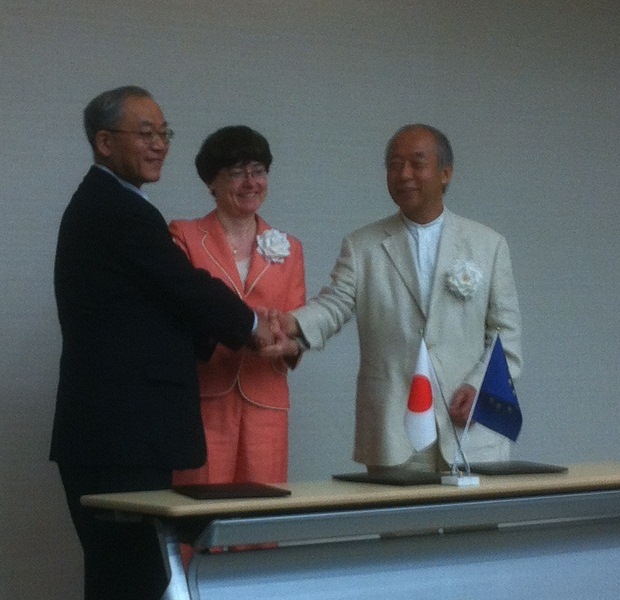EU and Japan join forces to tackle data explosion
EU News 361/2013
8 August 2013
On 3 July 2013 the European Commission and Japan announced six research projects aiming at redefining internet architectures to increase the efficiency of networks in carrying data. One project aims to build networks 5000 times faster than today’s average European broadband speed (100Gbps compared to 19.7Mbps).
There is a pressing need for new and more efficient networks in light of a massive online data explosion that is expected to continue over the next decade. Data traffic volumes are expected to grow 12-fold by 2018. Such big data is growing faster than networks' capacity to carry it.
The projects, will receive around €18m in funding, and touch on challenges such as cyber security, network capacity, storage, high density data traffic and energy efficiency. The combined consortia involve hundreds of researchers from the EU and Japan.
EU and Japan research ICT policies have much in common: e.g. the need to move towards global standards and interoperability favouring competition and open systems.
The six funded projects are:
STRAUSS aims to enable fibre optic networks at more than 100Gbps.
MiWEBA will handle capacity by making better use of existing radio frequencies in order to boost ultra-high speed and mobile connections.
NECOMA will explore new ways to enhance personal data security in sensitive environments such as medical history records by developing new metrics to evaluate threats and potential impact of cyber attacks.
GreenICN will try to ensure an efficient use of energy in information networks. It will test network reliability in post-disaster situations (earthquakes, hurricanes) when energy resources are scarce and network performance is vital.
ClouT will try to allow real-time control of sensors enabling smart city operations such as energy use, traffic flow or emergencies. To achieve this target, the project will integrate Cloud Computing and Internet of Things features.
FELIX will set up joint EU-Japan experimental platforms that will help universities and research centres test new network technologies. Such new platforms will improve researchers' use of their experimental facilities.
On 2 July MIC, NICT and the EC organized in Tokyo a launching event with the participation of about 130 delegates, mostly from Japan.
Useful links
The EU-Japan joint research Call in the Digital Agenda
EU-Japan Centre for Industrial Cooperation
Ministry of Internal Affairs and Communications, Japan
National Institute for Information and Communications Technology, Japan
Mr T. Takey (MIC), Ms M. Collins (EU) and Dr M. Sakauchi (NICT), Photo by Francisco J. Ibáñez, EU, 2013 URL














